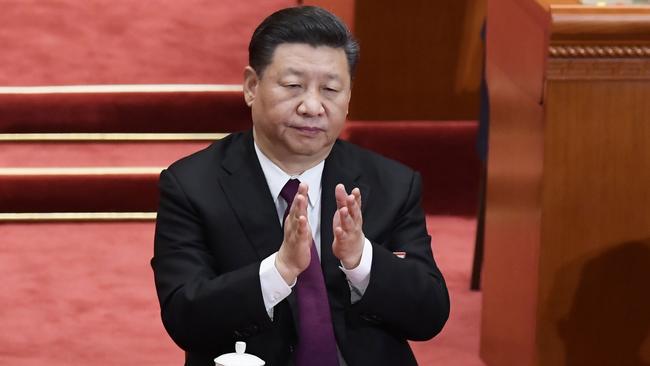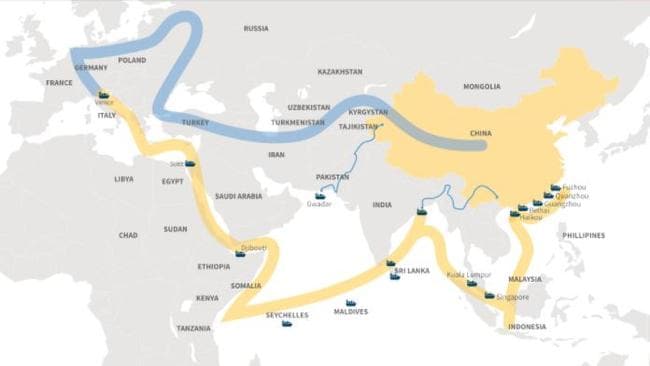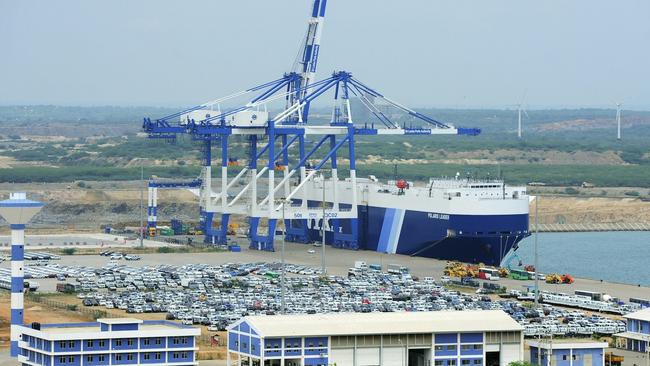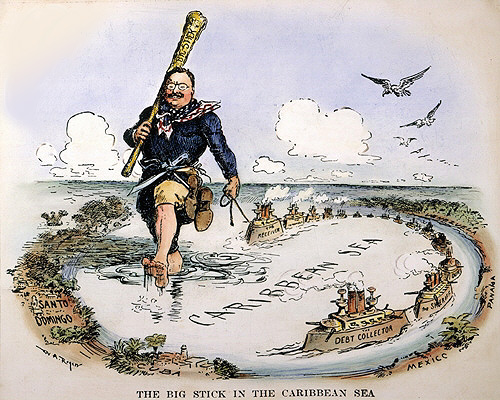- Joined
- Dec 31, 2010
- Messages
- 35,538
- Reaction score
- 4,983
@adifighter86, look at what your ching chong overlords are doing.
Beijing may be late to the colonial investment game, but they're executing this tried & proven strategy beautifully in countries that are a bit behind on the subject of World History.
China wants to conquer the world, and several poor countries have fallen into its debt-traps
Gavin Fernando | MARCH 25, 2018

China is out to conquer the world, and many have already fallen victim to its game.
The rising superpower has been asserting itself on the global stage for well over a decade, with its Belt and Road Initiative, part of its aim to become a central player.
But recent data from the Centre for Global Development (CGD), an international think tank, suggests its program has already left eight countries swimming in debt: Djibouti, Kyrgyzstan, Laos, the Maldives, Mongolia, Montenegro, Pakistan and Tajikistan.
After borrowing money from China for infrastructure projects, these countries are now pushing their debt-to-GDP ratios higher and higher, with China holding a rising share in them.
POORER COUNTRIES FALLING AT CHINA’S FEET

China’s game, best summed up by Quartz, goes like this: they offer the honey of cheap infrastructure loans, then attack with the sting of default when these poorer economies aren’t able to pay their interest down.
At the heart of this sits the Belt and Road Initiative, a trillion-dollar project that seeks to connect countries across continents on trade, with China at its centre.
The ambitious plan involves creating a 6000km sea route connecting China to South East Asia, Oceania and North Africa (the “Road”), as well as through building railway and road infrastructure to connect China with Central and West Asia, the Middle East and Europe (the “Belt”).
According to Dr Malcolm Davis, senior analyst in defence strategy and capability at the Australian Strategic Policy Institute, China is mainly targeting poorer countries and employing a “debt-trap strategy”.
Dr Davis told news.com.au the trillion-dollar project basically forces other countries to align themselves with it.
“It services their need in terms of accessing resources, sustaining contacts and national development, and maintaining that ‘China Dream’. It’s really vital for the Communist Party to maintain prosperity if they want to maintain power.”
He used Sri Lanka as a key example.
Last year, the island nation was forced to hand over a port to companies owned by the Chinese government last year after falling into more than $1 billion in debt.
The deal was signed between two state firms — the Sri Lanka Ports Authority (SLPA) and China Merchants Port Holdings — allowing the state-owned Chinese company to lease the port for 99 years.

Last year Sri Lanka formally signed its strategic Hambantota Port over to China for 99 years.
Tajikistan faced a similar story in 2011.
According to the CGD report, China reportedly agreed to write off an unknown amount of debt owed by Tajikistan in exchange for some 1158sq km of disputed territory.
At the time, Tajik authorities said they only agreed to provide 5.5 per cent of the land that Beijing originally sought.
Kyrgyzstan’s debt from infrastructure projects is set to raise from 62 per cent of the country’s GDP to 78 per cent, while China’s share of this debt will jump from 37 per cent to 71 per cent.
Likewise, Cambodia and Afghanistan could soon owe more than half their external debt to China, according to the Wall Street Journal, although the levels aren’t as concerning as for the other eight countries.
The report notes that in some instances, the debt is forgiven. But China responds on a case-by-case basis, and it’s difficult to know when they will and will not choose to make territory grabs.
http://www.news.com.au/finance/econ...t/news-story/a8c743bd7021187e73817d59ca48cb6b
China is just following the west's playbook.Wonder where they got that playbook from.........
China is just following the west's playbook.
The funny part is China is offering a better deal then the IMF, and World bank.
They actually come in and build the infastructure, so that corruption doesn't end up diverting the funds.
China also doesn't fund destructive proxy wars or work to keep brutal incompetent dictators in power against the wishes of the countries people.The funny part is China is offering a better deal then the IMF, and World bank.
They actually come in and build the infastructure, so that corruption doesn't end up diverting the funds.
And the funny shit is that said corruption and inability to payment is enabled by the west financial system and a huge reason why there is such a trade imbalance to begin with.
These third world politicians steal billions and put them into western banks.
China also doesn't fund destructive proxy wars or work to keep brutal incompetent dictators in power against the wishes of the countries people.
Yeah, there is truth to that. I would also say the union busting/anti-worker policy, and deregulation, is a result of the corrupt culture that is prevalent in varying degrees, everywhere.
Yes China is keeping the North Korean dictator in power but I was thinking of the countries in Africa and the rest of Asia. The west has destroyed many countries around the world with their proxy wars and propping up of dictators.Ever heard of a little country called North Korea?
Yes China is keeping the North Korean dictator in power but I was thinking of the countries in Africa and the rest of Asia. The west has destroyed many countries around the world with their proxy wars and propping up of dictators.
So what happens when the government is overthrown and the debt declared odious? who is going to collect? the Chinese navy? And if the debt is in Yuan nothing stops said countries to stop using it in the first place.
I agree, but the hard currency required to pay up said loans wouldnt be able to leave the country without all the tax havens around the world safekeeping them.
And rest assured these tax havens arent dealing in Yuan.
http://www.the-businessreport.com/article/chinese-mega-deals-set-to-build-and-expand-infrastructure/Yes China is keeping the North Korean dictator in power but I was thinking of the countries in Africa and the rest of Asia. The west has destroyed many countries around the world with their proxy wars and propping up of dictators.
So what happens when the government is overthrown and the debt declared odious? who is going to collect? the Chinese navy? And if the debt is in Yuan nothing stops said countries to stop using it in the first place.
You see in order to carry out a gunboat diplomacy you actually need gunboats in the first place.
Sure and if the next government declares such treaty void what are the Chinese going to do? invade?
The Chinese needs to stop copying America and thinking they have to go through ALL stages of turning into an imperial power.
For the time being the US dominates but China is trying to unseat the West; they play the loooong game. Slow steady long march to world domination.
Question, what is the debt denominated in and who enforces it?

Aggressive lending of hundreds of millions of dollars on discounted terms by China in the South Pacific is leading to financial distress in the region and causing island nations to grapple with debt repayment.
The government of Vanuatu was forced to lift its GST-style consumption tax from 12.5 per cent to 15 per cent on January 1, largely in an attempt to help service huge concessional loans from China, while Tonga is scrambling to start repaying massive Chinese debts with a five-year amnesty brokered by the International Monetary Fund to expire in coming months.
Across the Pacific, a relative building boom has taken place on the back of large discounted or “concessional” loans granted by China on the proviso the borrower nations spend the money building infrastructure using Chinese construction groups.
In addition to those loans, which typically are made offering a five- to seven-year interest grace period before interest rates of between 1 per cent and 3 per cent kick in over a 15- to 20-year repayment schedule, China has “gifted” tens of millions of dollars worth of infrastructure projects.
In the 10 years to 2016, China transferred at least $2.2 billion to Pacific nations, according to think tank Lowy Institute, with that money partly by way of gifts, but overwhelmingly in the form of concessional loans.
In Port Vila, a giant, 1000-seat volcano-shaped National Convention Centre dominates the Vanuatu capital’s skyline, towering over the surrounding neighbourhoods comprised of single-storey modest brick homes and shacks with corrugated iron roofs.
The inside of the cavernous structure has the feeling of an Opera House, with soaring ceilings, complete with rows of raised galleries.
In addition to the auditorium, the centre, handed over to the Vanuatu government in 2016, has a 600-seat fully equipped restaurant and kitchen, four meeting rooms, a “VIP room” and a room with 200 seats for the purpose of press conferences.
And even though the project was a “gift” from China, it too is weighing on the Vanuatu government’s finances: the very small amount of rent it has been able to raise from the centre has not been enough to cover its electricity bill.
Critics point out Port Vila does not have enough hotel rooms to house the number of visitors the convention centre is designed for.
Earlier this month, Australian International Development Minister Concetta Fierravanti-Wells caused tensions with Beijing after accusing China of constructing “useless buildings”, “roads to nowhere” and “white elephants” in the Pacific. China angrily rejected those claims.
About 1km north of the convention centre is Vanuatu’s new Prime Minister’s Office, an $11.8 million sprawling project — another gift from Beijing — that overlooks the picturesque Male Bay.
Dan McGarry, journalist and media director of the Vanuatu Daily Post, told The Australian China was building new roads in regional Vanuatu that were well built — and well received by locals — along with other well received projects.
But the overall debt for those projects was starting to cause serious financial pain — particularly now interest-rate grace periods were ending — and Vanuatu had been forced to establish a debt management unit in a bid to deal with the problem.
Alongside lifting its value- added tax to 15 per cent, Vanuatu is also considering introducing income taxes for the first time.
Introducing such a tax would have major implications for the nation’s status as a tax haven, used by businesses and individuals worldwide.
John Sala, who was Vanuatu parliamentary secretary for revenue initiatives until he was stood down last month, has said the revenue increases were to fund “vital social services such as education and health” and “also its current external debts”.
McGarry and international experts such as Derek Brien of the Pacific Institute of Public Policy have said the push to lift revenue is unambiguously a result of the need to make repayments on foreign loans.
The Vanuatu government did not respond to requests for comment.
Vanuatu’s Ministry of Finance estimates the nation’s foreign debt to GDP is set to grow from 18 per cent last year to 26.4 per cent next year, and up to 33 per cent by 2022 due to the “current large project disbursements”.
Total foreign debt is $440m, including $210m to China, $120m to Japan, $70m to the Asian Development Bank and $40m to the World Bank.
In Tonga, the marks of Chinese money are impossible to miss. In downtown Nuku’alofa, a gift from China has recently been completed: the towering five-level St George Palace, a huge $13.5m complex that will house the Prime Minister’s Office, the Ministry of Finance and the office of Trade and Foreign Affairs.
Inside, the layout is opulent: carved wooded archways, impressive pillars, and rows of chandeliers hang from the ceiling.
But, like Vanuatu, Tonga is also heavily indebted to China. It has $269m in total public debt, of which $237.7m is foreign debt — 44 per cent of GDP.
Of that foreign debt, $143.7m, or 60 per cent, is owed to China with almost all the rest owed to the Asian Development Bank and the World Bank.
In 2008 and 2010, Tonga took out two loans from the Export-Import Bank of China, or EXIM Bank, totalling $311m.
The first, $146m was to fund the rebuilding of the Tonga CBD after a 2006 riot that destroyed between 60 per cent and 80 per cent of the Nuku’alofa centre, and the second, $106m, ostensibly for road building and rehabilitation works (although much of the second loan was spent building Vuna Wharf and renovating the Royal Palace). In 2013, when the repayments on the first loan became due after a five-year grace period expired, Tonga called on China to convert the loans to “grants” but those requests were rejected.
After intervention by the IMF, China agreed to postpone payments for five years. But the term of the loans remained the same, meaning when principal and interest payments are required to be paid again — in 2018-2019 — they will be even higher than in 2013.
China’s ambassador to Australia, Cheng Jingye, declined to comment when asked whether those Tongan debts would be enforced in coming months.
The frustration with China is palpable in Tonga.
Many business owners told The Australian that residents felt “helpless” and held to ransom by China.
Locals said they felt they had been sold out by the Tongan government, which had been heavily wooed by China and had welcomed lavish gifts with open arms.
A representative of the Tongan Chamber of Commerce and Industry said the issue of debt to China was a “red hot topic” but could not comment further. The Tongan government declined to respond.
One taxi driver said the feeling among Tongans was the Chinese government was loading up the nation with unserviceable debt, while Chinese nationals were putting locals out of work.
Across the island nation retail trading is dominated by Chinese nationals who run small stores, stocked with goods brought in on containers from China.
If it's localised to Syria, fantastic. The problem is you have two of the most powerful nations on earth flexing their considerable muscle over that worthless shit-hole.
Logically, no one wants WWIII. But no one wanted WWI or WWII either...
And the funny shit is that said corruption and inability to payment is enabled by the west financial system and a huge reason why there is such a trade imbalance to begin with.
These third world politicians steal billions and put them into western banks.
